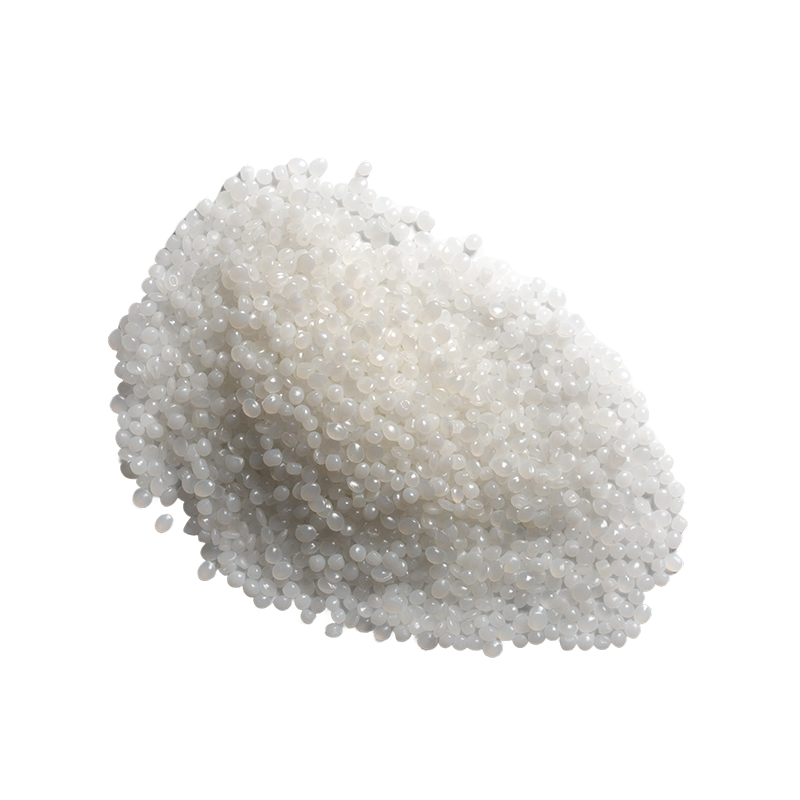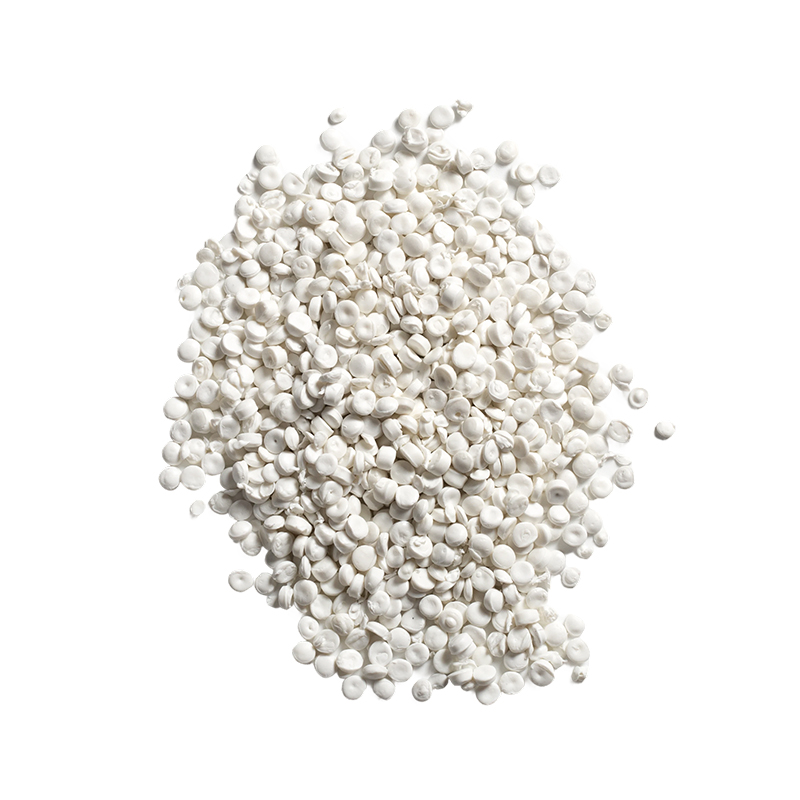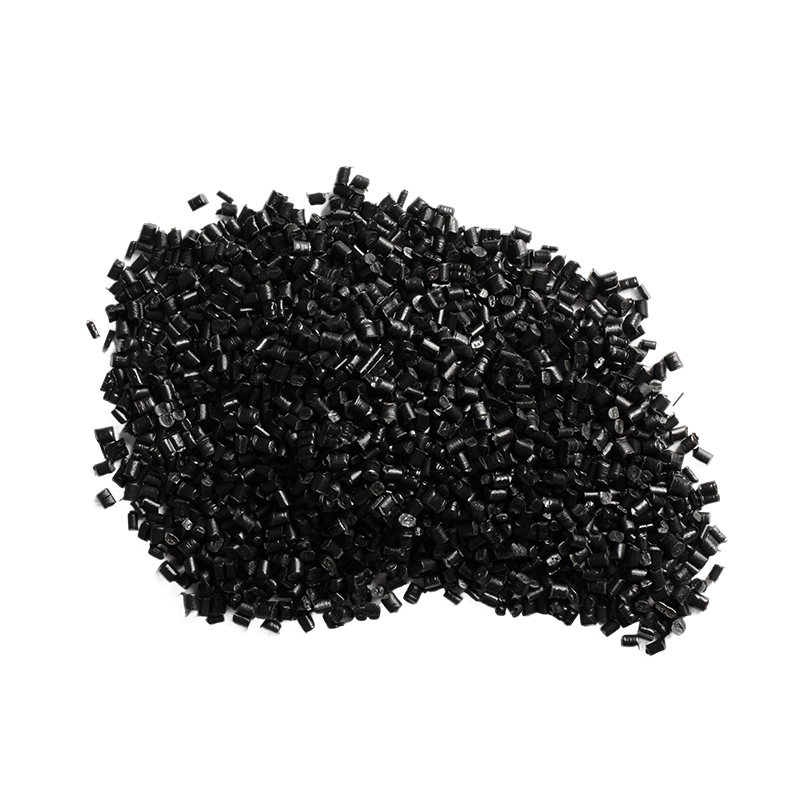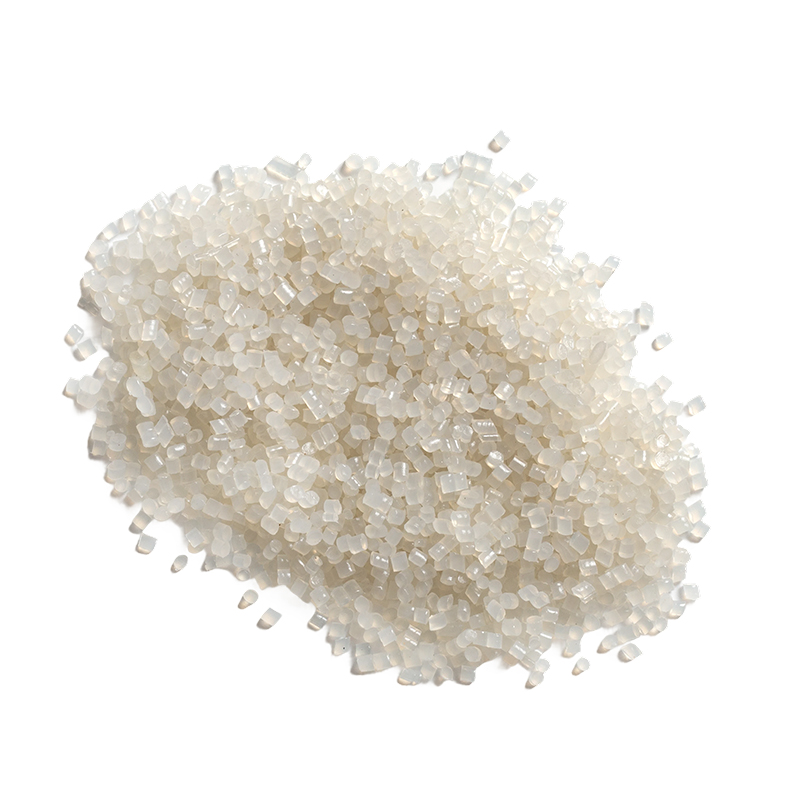Is the raw material source for PE recycled pellets stable and reliable?
Release Time : 2025-10-09
Amidst the broader push for a circular economy and sustainable development in plastics, PE recycled pellets are increasingly being adopted by manufacturers as a key alternative to virgin plastic. However, a key prerequisite for their widespread adoption is the stability and reliability of the raw material source. This not only impacts the continuous supply of recycled pellets but also directly influences their quality consistency, production costs, and the performance of the final product. A healthy and reliable raw material supply chain is the cornerstone for the scaled and standardized development of the recycled plastics industry.
The raw material for PE recycled pellets primarily comes from various discarded polyethylene products, covering a wide range of applications in daily life and industrial production. Common sources include used plastic packaging bags, express film, agricultural mulch, milk bottles, detergent bottles, industrial packaging barrels, and protective film used in construction. These waste materials, after sorting and recycling, become the starting material for recycled pellet production. The availability and purity of the raw material depend on the comprehensiveness of the municipal solid waste sorting system, the coverage of the industrial waste recycling network, and the operational capabilities of professional recycling companies.
A stable raw material supply relies on a systematic recycling system. In mature markets, household waste plastics form an orderly logistics chain through community sorting, centralized collection and transportation by professional recycling companies, and meticulous sorting at sorting centers. Industrial waste is often collected through long-term partnerships between manufacturers and recyclers, enabling targeted, point-to-point recycling. This ensures clear waste types, minimal contamination, and high quality. This institutionalized recycling model enables recycled pellet manufacturers to predict raw material quantities and composition in advance, develop rational production plans, and avoid disruptions to normal operations due to raw material shortages or fluctuations.
The reliability of raw materials is reflected in the purity and consistency of their composition. Mixed waste plastics from different sources may contain other resins such as PVC, PET, and PP, as well as impurities such as oil, labels, glue, and metal. Without rigorous sorting, the performance of the recycled pellets will be severely affected. Therefore, professional recycling companies are typically equipped with advanced automated sorting equipment, such as near-infrared spectroscopy, air separation, water separation, and density separation, to precisely remove non-PE materials and contaminants. They also establish strict incoming material inspection standards and conduct quality assessments on each batch of raw materials to ensure that the materials entering the production line meet processing requirements. This comprehensive process control, from source to factory entry, is a key means of ensuring raw material reliability.
In addition, raw material stability is also influenced by the policy environment and market mechanisms. Government legislation promoting waste sorting, policies encouraging the use of recycled plastics, and controls on the import of "foreign waste" will all alter the flow and supply structure of waste plastics. Companies that establish long-term strategic partnerships with upstream recyclers, participate in the development of recycling networks, or develop their own recycling channels will effectively strengthen their control over raw material supply and mitigate the risks of external fluctuations.
In actual production, a reliable raw material source ensures that key indicators such as the melting characteristics, color, and strength of recycled pellets remain stable, minimizing batch-to-batch variability. This is particularly important for downstream customers, especially in processes sensitive to material properties, such as blown film and injection molding. Stable raw materials reduce process adjustments, improve production efficiency, and increase product yield. Furthermore, traceable raw material sources help meet brand owners' environmental compliance and social responsibility requirements, supporting the publication of sustainability reports or the application of green certifications.
In summary, the stability and reliability of the raw material source for PE recycled pellets is not only a supply chain issue but also crucial to the healthy development of the entire recycled plastics industry. By building a comprehensive recycling network, employing advanced sorting technologies, establishing long-term partnerships, and implementing strict quality control systems, recycling companies can ensure a continuous, pure, and consistent supply of raw materials. This not only enhances the market competitiveness of recycled pellets but also provides a solid foundation for the closed-loop plastics cycle, reducing resource consumption and environmental burden while promoting the transformation of the manufacturing industry towards a green and low-carbon future.
The raw material for PE recycled pellets primarily comes from various discarded polyethylene products, covering a wide range of applications in daily life and industrial production. Common sources include used plastic packaging bags, express film, agricultural mulch, milk bottles, detergent bottles, industrial packaging barrels, and protective film used in construction. These waste materials, after sorting and recycling, become the starting material for recycled pellet production. The availability and purity of the raw material depend on the comprehensiveness of the municipal solid waste sorting system, the coverage of the industrial waste recycling network, and the operational capabilities of professional recycling companies.
A stable raw material supply relies on a systematic recycling system. In mature markets, household waste plastics form an orderly logistics chain through community sorting, centralized collection and transportation by professional recycling companies, and meticulous sorting at sorting centers. Industrial waste is often collected through long-term partnerships between manufacturers and recyclers, enabling targeted, point-to-point recycling. This ensures clear waste types, minimal contamination, and high quality. This institutionalized recycling model enables recycled pellet manufacturers to predict raw material quantities and composition in advance, develop rational production plans, and avoid disruptions to normal operations due to raw material shortages or fluctuations.
The reliability of raw materials is reflected in the purity and consistency of their composition. Mixed waste plastics from different sources may contain other resins such as PVC, PET, and PP, as well as impurities such as oil, labels, glue, and metal. Without rigorous sorting, the performance of the recycled pellets will be severely affected. Therefore, professional recycling companies are typically equipped with advanced automated sorting equipment, such as near-infrared spectroscopy, air separation, water separation, and density separation, to precisely remove non-PE materials and contaminants. They also establish strict incoming material inspection standards and conduct quality assessments on each batch of raw materials to ensure that the materials entering the production line meet processing requirements. This comprehensive process control, from source to factory entry, is a key means of ensuring raw material reliability.
In addition, raw material stability is also influenced by the policy environment and market mechanisms. Government legislation promoting waste sorting, policies encouraging the use of recycled plastics, and controls on the import of "foreign waste" will all alter the flow and supply structure of waste plastics. Companies that establish long-term strategic partnerships with upstream recyclers, participate in the development of recycling networks, or develop their own recycling channels will effectively strengthen their control over raw material supply and mitigate the risks of external fluctuations.
In actual production, a reliable raw material source ensures that key indicators such as the melting characteristics, color, and strength of recycled pellets remain stable, minimizing batch-to-batch variability. This is particularly important for downstream customers, especially in processes sensitive to material properties, such as blown film and injection molding. Stable raw materials reduce process adjustments, improve production efficiency, and increase product yield. Furthermore, traceable raw material sources help meet brand owners' environmental compliance and social responsibility requirements, supporting the publication of sustainability reports or the application of green certifications.
In summary, the stability and reliability of the raw material source for PE recycled pellets is not only a supply chain issue but also crucial to the healthy development of the entire recycled plastics industry. By building a comprehensive recycling network, employing advanced sorting technologies, establishing long-term partnerships, and implementing strict quality control systems, recycling companies can ensure a continuous, pure, and consistent supply of raw materials. This not only enhances the market competitiveness of recycled pellets but also provides a solid foundation for the closed-loop plastics cycle, reducing resource consumption and environmental burden while promoting the transformation of the manufacturing industry towards a green and low-carbon future.







